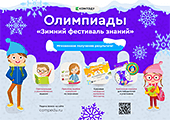Lesson plan
| Unit of a long term plan | School: | |||||||||||||||||||||||||
| Date: | Teacher name: | |||||||||||||||||||||||||
| CLASS: 7 | Number present: | absent: | ||||||||||||||||||||||||
| Lesson title | Hobbies and Leisure. Diagnostic test | |||||||||||||||||||||||||
| Learning objectives(s) that this lesson is contributing to (link to the Subject programme) | 7.C4 evaluate and respond constructively to feedback from others 7.S1 use formal and informal registers in their talk on a limited range of general and curricular topics 7.L2 understand with little support most specific information in extended talk on a limited range of general and curricular topics
| |||||||||||||||||||||||||
| Level of thinking skills | Comprehension, Application, Evaluation | |||||||||||||||||||||||||
| Lesson objectives | They will learn types of leisure activities names. They will talk about how they like to spend their free time. They will describe the benefits of hobbies and why people need to have a hobby.
| |||||||||||||||||||||||||
| Assessment criteria | They get acquainted with topical vocabulary and pronounce them correctly. They can differentiate the usage of “do, play, go” in describing their favourite type of hobby. They can tell about the benefits of hobbies using special phrases.
| |||||||||||||||||||||||||
| Differentiation | Less able students will know the meaning of hobbies names and make up sentences with like, dislike, to be fond of, to be keen and so on. | |||||||||||||||||||||||||
| More able students will narrate heard information from recording and retell it to the class. | ||||||||||||||||||||||||||
| Most able students can describe benefits of hobbies and do a survey to the whole class. | ||||||||||||||||||||||||||
| Values links | The strategy “Mangilik Yel”. To invite students to manage their time appropriately. To respect art crafts and heritage of our ancestors.
| |||||||||||||||||||||||||
| Cross-curricular links | Art, Music, Sport, Sociology, Psychology | |||||||||||||||||||||||||
| Previous learning | Test for students vocabulary stock | |||||||||||||||||||||||||
| Plan | ||||||||||||||||||||||||||
| Planned timings | Planned activities (replace the notes below with your planned activities) | Resources | ||||||||||||||||||||||||
| Start 10mins 10mins
| Organization moment. Checking for their attendance and home task. Diagnostic test. Pair work. (Ask them how they spent their holiday and where). Students are warned to use past simple tense, if necessary revise the form of it. A student listens to B student and make it down to retell to the class what his partner did in summer. Brainstorming. Write free time on the board. Say one true sentence about your free-time activities,e.g,I read a lot in my free time. or, In my free time I watch films on DVD. Write the names of the activity on the board: reading or films, or whatever you said. Ask: Who else likes reading/films;' .. ? Add two or three more simple names of popular activities which you think some of your students may like : football, walking, dancing, drawing. For each of them ask: Who likes... ?Then add the word activities (and the hyphen in free-time) to the board to complete the title of the lesson: free time activitis. Say: Today we're going to talk about free-time activities. | Board, copybooks
Test sheets | ||||||||||||||||||||||||
| 5mins 6 mins
5mins
| Vocabulary teaching. Students are provided with eight pictures to each and match 8 words to photos (from the box). Peer assessment. Encourage them to compare answers in pairs before checking as a class. As they finish they pronounce them with the help of the teacher.
Pair work. Learners tell about which sports and hobbies can they do:
His partner may express his opinion if he disagrees with him.
Listening task. Less able and more able students listen to four teenagers and tick to the names of teenagers which sport or hobby is each person interested in. Most able students give recommendations to teenagers using phrases below: Your hobby … • helps you deal with stress. • relaxes you. • challenges me. • means you can meet new people. • keeps you fit. • gets you out of the house. • helps you forget about my worries. • makes you feel free. | Handout with pictures
Handout with pictures.
Sheets with tasks | ||||||||||||||||||||||||
| End 4mins | Concluding the lesson Assessment Peer and self assessment chart Giving the home task Write a short article for the English school magazine about your hobby. Write: name of hobby, how you do, play it, why you like it. | Copybooks Peer and self assessment charts | ||||||||||||||||||||||||
| Additional information | ||||||||||||||||||||||||||
| Differentiation – how do you plan to give more support? How do you plan to challenge the more able learners? | Assessment – how are you planning to check learners’ learning? | Health and safety check | ||||||||||||||||||||||||
| | Group, peer and individual assessment were used using special assessment descriptor. |
| ||||||||||||||||||||||||
| Reflection Were the lesson objectives/learning objectives realistic? Did all the learners achieve the lesson objectives/ learning objectives? If not, why? Did my planned differentiation work well? Did I stick to timings? What changes did I make from my plan and why?
| | |||||||||||||||||||||||||
|
| ||||||||||||||||||||||||||
| Summary evaluation
What two things went really well (consider both teaching and learning)?
1: 2:
What two things would have improved the lesson (consider both teaching and learning)?
1: | ||||||||||||||||||||||||||





